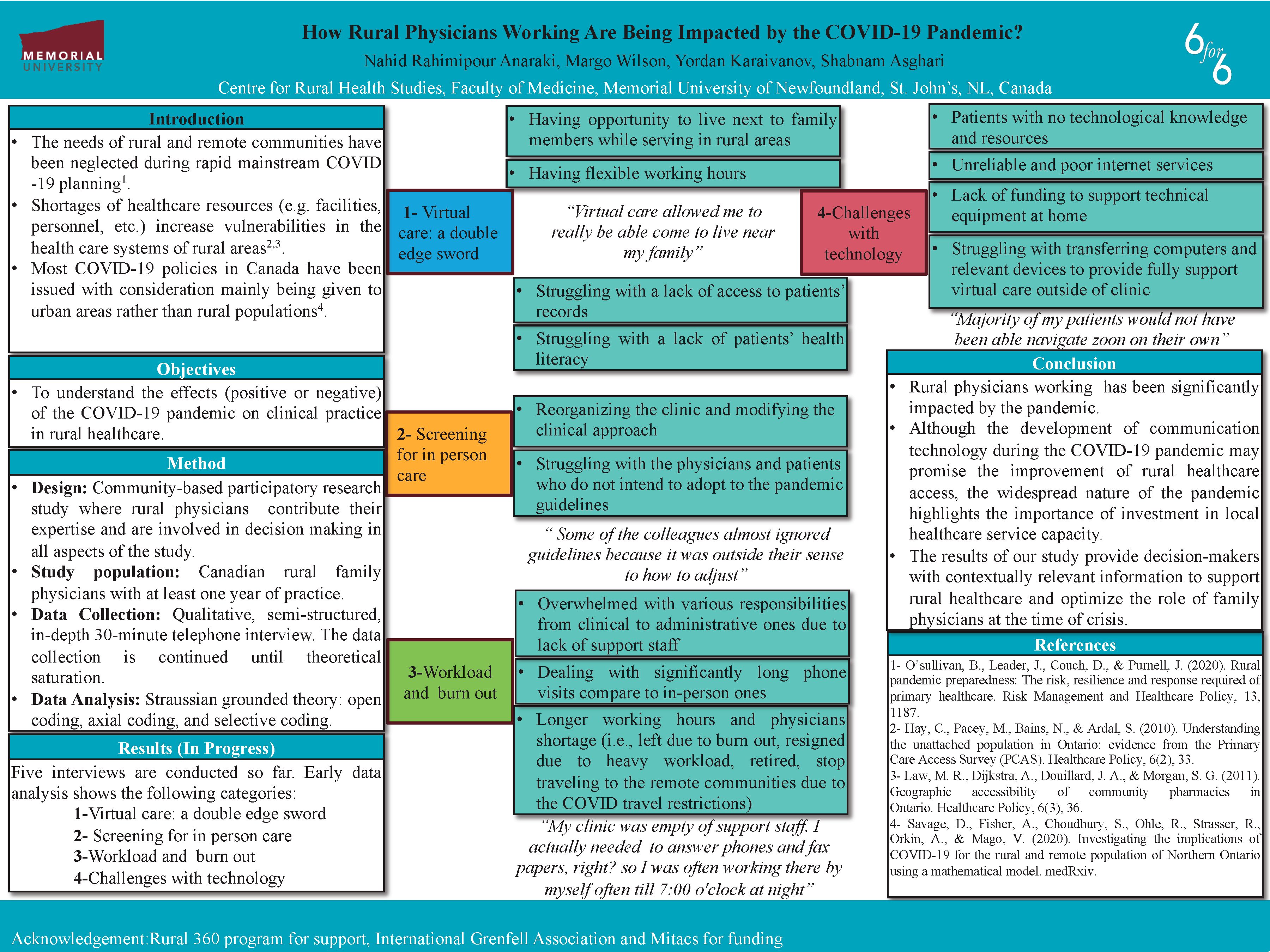PRP045: How Rural Physicians Working Are Being Impacted by the COVID-19 Pandemic
Nahid Rahimipour Anaraki, PhD; Shabnam Asghari, MD, PhD, MPH; Margo Wilson, MD, BSc
Abstract
Context: The complexity and seriousness of the COVID-19 pandemic are undeniable in rural and remote areas. Rural physicians play an essential role in pandemic response and recovery. However, existing pandemic plans do not adequately incorporate rural physicians and account for the existing challenges in rural communities. We are conducting participatory action research to explore the contextually relevant rural healthcare needs and support rural physicians. Our goal is to inform the development of pandemic plans for rural healthcare by examining rural physicians’ experiences. Objective: To investigate effects (positive or negative) of the COVID-19 pandemic on clinical practice in rural healthcare. Study Design: This study utilizes community-based participatory research as a collaborative and partnership approach, which equitably engaged community members in all aspects of research, from designing the research question to analyzing data. Setting: Rural and Remote community in Canada. Population of study: rural family physicians who have at least one year of clinical practice experience. Recruitment: Rural physicians are recruited via recruitment email, sent via Memorial University rural research capacity building program list server, the Society of Rural Physicians of Canada list server, and nomination by stakeholders. Purposive (i.e., sex, age, years of practice) and snowball sampling are used in this study. Data collection: A qualitative, semi-structured, in-depth 30-minute telephone interview is conducted. Data collection stops once saturation reached. Analysis: All interviews are transcribed verbatim and thematically analyzed by a qualitative research expert. Results: The research is in progress, and results will be available at the time of presentation. Conclusion: Although the development of communication technology during the COVID-19 pandemic may promise the improvement of rural healthcare access, the widespread nature of the pandemic highlights the importance of investment in local healthcare service capacity. The results of our study provide decision-makers with contextually relevant information to support rural healthcare and optimize the role of family physicians at the time of crisis.

Diane Harper
harperdi@med.umich.edu 11/21/2021Thank you for sharing with us at NAPCRG.